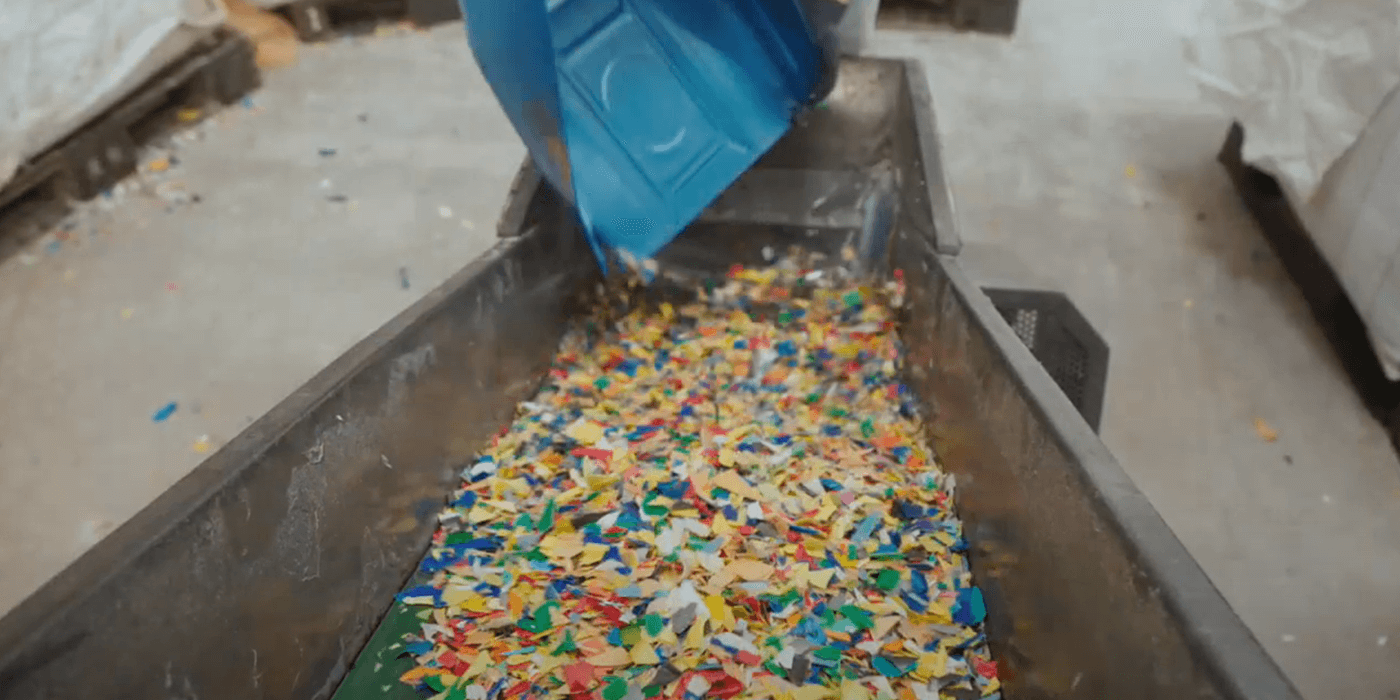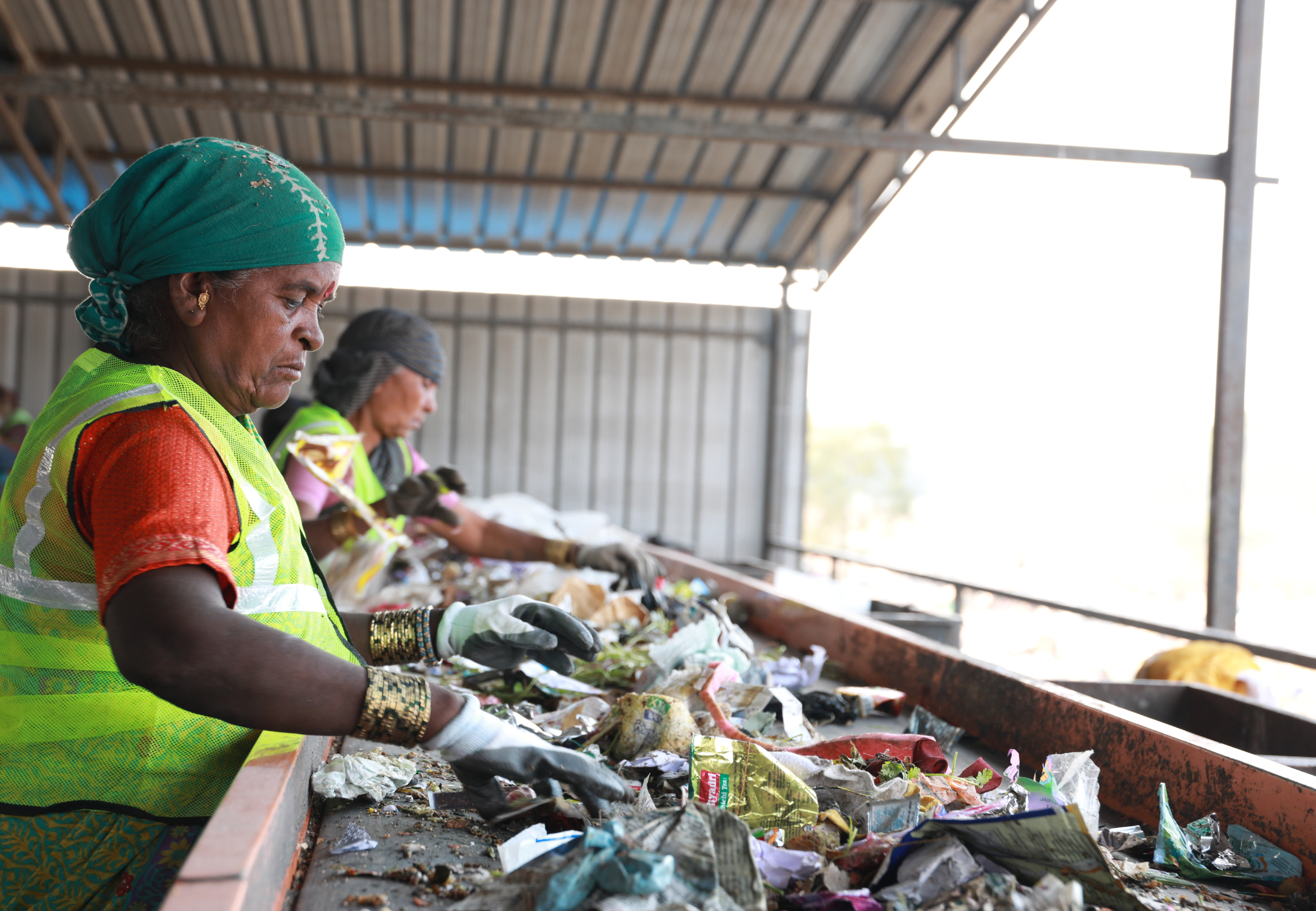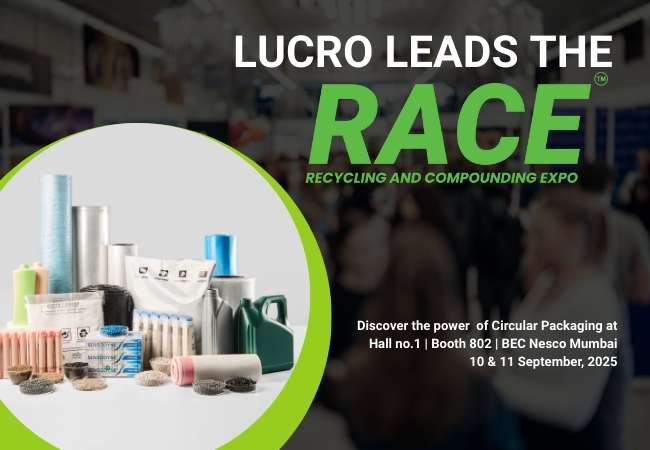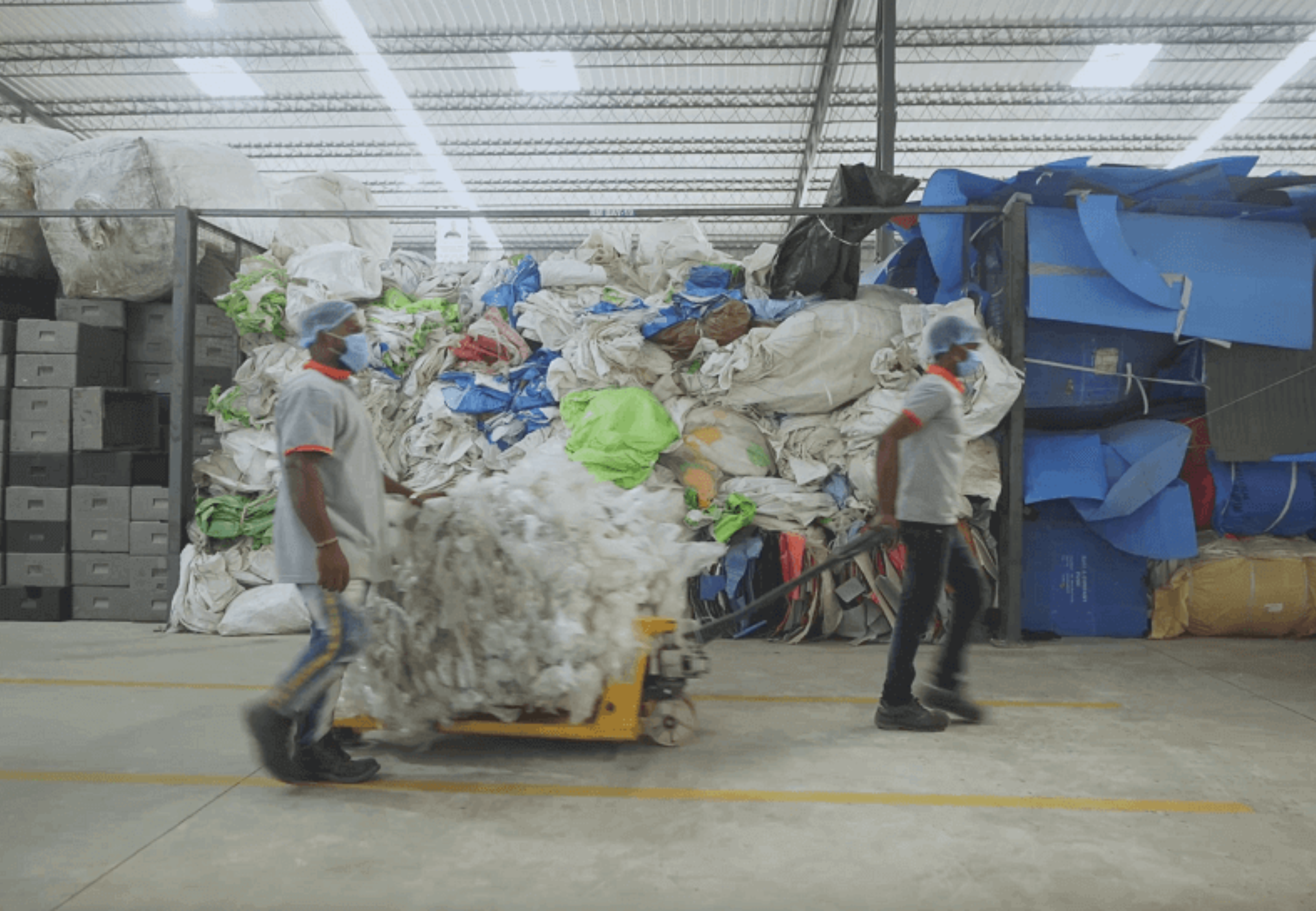Every Drop Counts: How Lucro is Championing Water Conservation While Upcycling Plastic
With nearly a third of India experiencing water stress, and over 600 million Indians facing high to extreme water scarcity, the urgency to treat water as a precious resource has never been greater. By 2030, India’s water demand is expected to be twice the available supply, according to NITI Aayog. If unchecked, water scarcity is set to become one of the country's most significant economic and social risks.
At Lucro, we understand that sustainability isn't just about managing waste—it’s about doing it responsibly, without putting additional pressure on our already strained natural resources. That’s why SDG 6: Clean Water and Sanitation remains at the heart of our operations.
Plastic waste collected from households and communities is often contaminated with food, oil, and dirt. To upcycle this material into reusable, brand-grade packaging, thorough cleaning is essential. However, cleaning one ton of post-consumer plastic waste can require up to three tons of water.
Given that India is home to 16% of the world’s population but has access to only 4% of global freshwater resources, it's imperative for industries like ours to rethink every drop.
We are committed to reducing our water footprint while still delivering high-quality recycled plastic products. Here’s how we’re making that happen:
Efficient Waste Sorting
Before any washing begins, all plastic waste goes through three layers of sorting into 15+ categories. Only materials that truly require cleaning are washed—significantly reducing unnecessary water use.

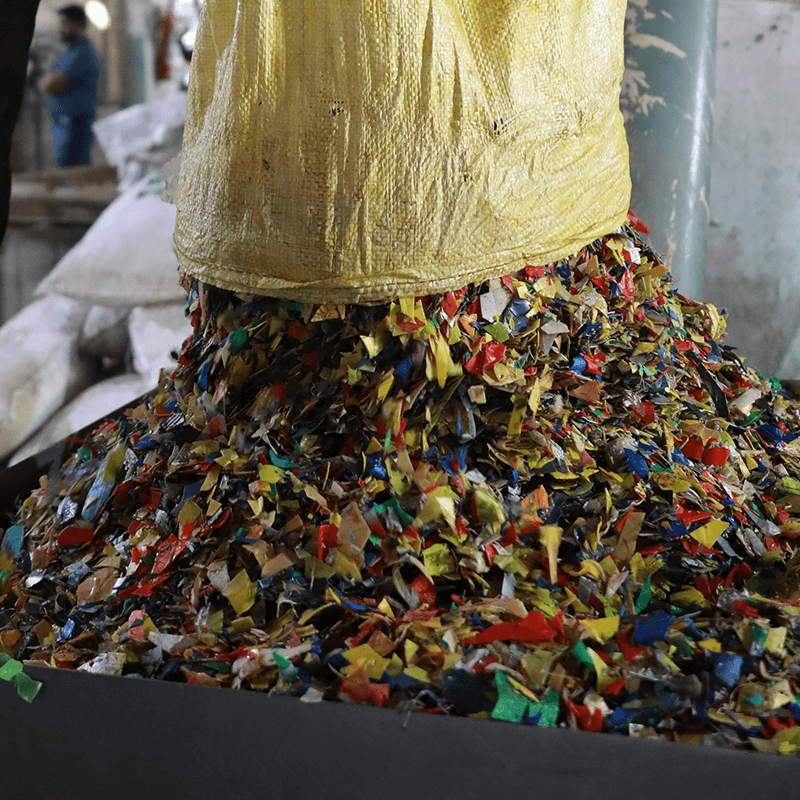
Recycling and Reusing 95%+ of Our Water
Our facilities are equipped with flowmeters to track input and output at every stage. This ensures we constantly improve our water-use efficiency. Over 95% of our water is treated and reused, reducing the pressure on freshwater sources while lowering operational costs.
Dry-Wash Innovation for Rigid Plastics
For oil-laden plastic containers—like motor oil or cooking oil bottles—we’ve developed a dry wash system that removes residues without traditional washing. This innovation alone reduces water consumption for these items by up to 50%.
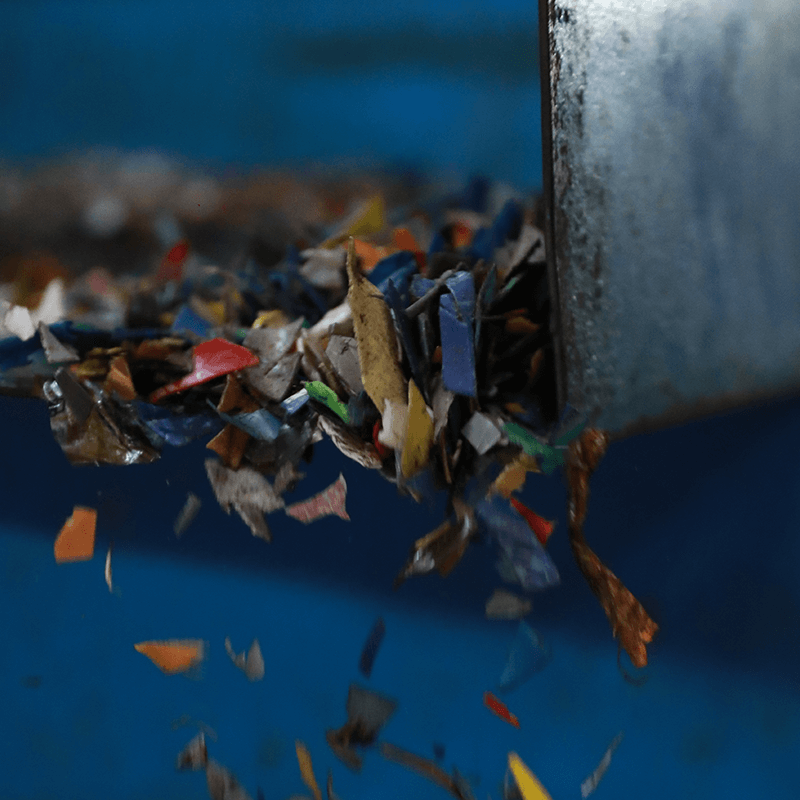
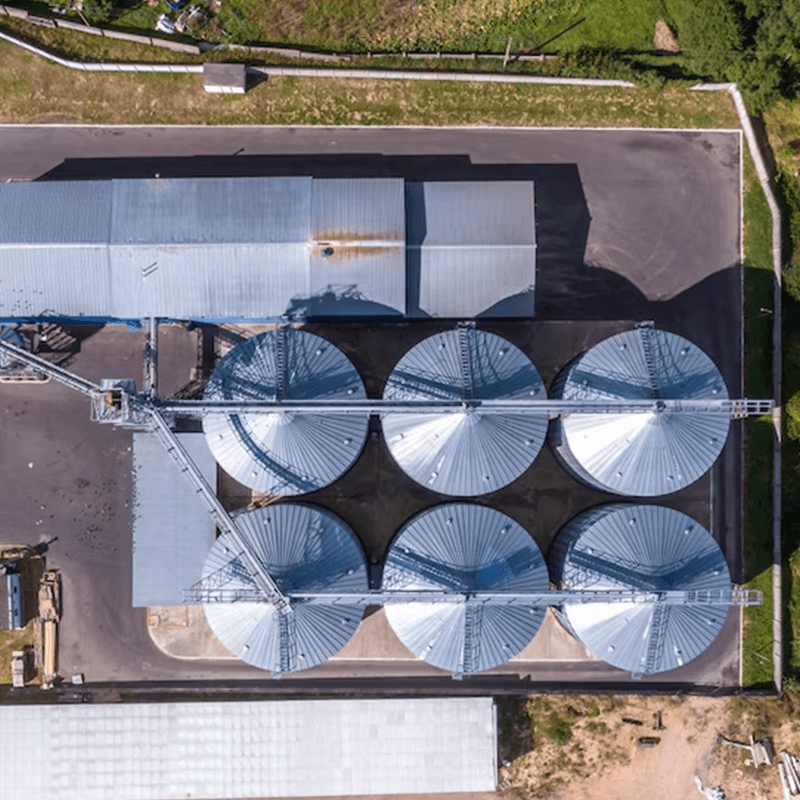
Rainwater Harvesting Infrastructure
Our aim is to ensure our new facility rooftops are equipped with rainwater harvesting systems and storage tanks that can store over 300,000 liters of water. This captured rainwater will help supplement our operations and reduces reliance on municipal water supply.
Integrated Water Resource Management
We conduct regular workshops with our staff and facility workers on water conservation to ensure that awareness and accountability flow through every level of the organization.

Water conservation is a shared responsibility. That’s why we’re also working closely with local communities around our facilities to raise awareness about how mismanaged plastic waste pollutes water bodies. Through on-ground engagement, we’re encouraging people to reduce dumping, avoid burning plastics, and understand the environmental cost of careless disposal.
As a company committed to upcycling plastic waste and reducing reliance on virgin plastic, we take care to ensure that our operations don't shift the environmental burden elsewhere. By monitoring our supply chain, embedding checks at every stage, and innovating with intention, we’re proving that sustainability is not just possible—it’s necessary.
As a company committed to upcycling plastic waste and reducing reliance on virgin plastic, we take care to ensure that our operations don't shift the environmental burden elsewhere. By monitoring our supply chain, embedding checks at every stage, and innovating with intention, we’re proving that sustainability is not just possible—it’s necessary.

